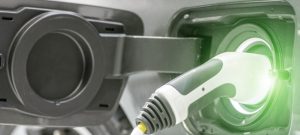All posts by John Howard

From the vehicles we drive to the way we purchase them, everything in the automotive industry is evolving as new technologies, shifting incentives, and changing consumer expectations continue to develop. As electrified vehicles continue to grow their presence on the road, Experian’s Automotive Market Trends Report: Q3 2025 took a deep dive into this segment and found that 5.5 million electric vehicles (EVs) and 11.7 million hybrids were in operation this quarter. Furthermore, data through the third quarter of this year found that 73.8% of EV owners returning to market replaced their EV with another EV and only 16.5% switched to a gas-powered vehicle. The significant EV loyalty among consumers signals that the ownership experience is delivering on core expectations. While some owners continued to opt for an EV because they’ve grown accustomed to certain conveniences such as charging stations at home or workplace to avoid traditional fueling and the perks of lower maintenance needs, others took advantage of the EV tax credits before they expired at the end of September. However, as these motivations shift, it will be important to monitor how the EV market unfolds over the next six months. Notably, 11.7% of gas-powered vehicle owners replaced their vehicle with a gas-hybrid vehicle this quarter, suggesting that hybrids are acting as an effective bridge toward deeper electrification. In fact, drivers may see hybrids as the ‘happy medium’ vehicle that offers improved fuel efficiency without requiring full reliance on charging infrastructure. Why this matters for the aftermarket As the majority of consumers replace their EVs with another one and some switch their gas-powered vehicle for an electrified one, these trends signal potential long-term commitment to alternative fuel segments. This is important to monitor for aftermarket professionals as the EV service volume continues to grow, requiring different parts and technician training. With consumers increasingly turning to the aftermarket for cost-effective support, professionals who adapt to diverse powertrains will be best positioned to navigate this evolving wave of post-warranty demand. To learn more about EVs and other vehicle market trends, view the full Automotive Market Trends Report: Q3 2025 presentation on demand.

From shifting consumer preferences to aging vehicles reshaping service demand, data from the second quarter of 2025 revealed a dynamic landscape where new and used vehicle registrations grow, and the aftermarket “Sweet Spot” becomes a rich source for service providers. Experian’s Automotive Market Trends Report: Q2 2025 found that light-duty vehicles reached 293.5 million, up from 291.1 million through Q2 2024. This growth can be attributed to the 16.3 million new vehicle registrations and 39.5 million used vehicle ownership changes, demonstrating a healthy turnover in the market. Taking a closer look at the registration trends, new vehicle registrations saw a 7.7% year-over-year increase, reaching 4.2 million through Q2 2025. Meanwhile, used vehicle registrations also slightly increased by 2% from last year, rising to 10.2 million this quarter, as buyers continued to seek pre-owned options amid conversations around affordability. Leveraging aftermarket trends for service opportunities As vehicles age and warranties expire, there is a natural shift to aftermarket services, and the continuous growth in the aftermarket sweet spot shows that consumers are willing to keep their vehicles for longer periods of time, as long as they’re still functional. The aftermarket sweet spot is made up of vehicles aged 6-to-12-years old and are typically out of manufacturer warranty, making them prime candidates for aftermarket services. For instance, 35.5% of all light-duty vehicles on the road fell into this category through Q2 2025, signaling an opportunity for service providers and parts manufacturers. With total vehicle registrations on the rise and more vehicles entering the aftermarket sweet spot, it gives automotive professionals in all stages of the buying journey an opportunity to capitalize on these positive trends and meet consumers where they are needed the most. To learn more about vehicle market trends, view the full Automotive Market Trends Report: Q2 2025 presentation on demand.

While Experian is known as a trusted source for credit insights, we have built a reputation for helping car shoppers, dealers, and lenders make informed decisions with confidence in the automotive space. Leveraging the value of data is key for identifying the latest trends in markets, behaviors, and industry changes. In fact, Experian’s Automotive Market Trends Report: Q1 2025 revealed the latest shifts in alternative fuel type registrations. Through the first quarter of this year, data found that growth in retail registrations for electric vehicles (EVs) is slowing compared to previous years, reaching 7.8%, down from 7.9% last year and 7.1% the year prior. Meanwhile, hybrids increased to 13.6% of new retail registrations through Q1 2025, from 11.3% through Q1 2024 and 8.8% through Q1 2023. Some of the uptick in hybrids may be attributed to consumers’ concerns with EV charging infrastructure and range anxiety. Hybrids are known to offer practical middle grounds—with the convenience of refueling and not having to plan longer trips around charging availability, this fuel type is becoming a more ideal choice for some. Vehicle preferences continue to vary by age group Through Q1 2025, Gen Z accounted for 14.8% of new retail hybrid registrations and 8.4% of EV registrations, while Millennials made up 15.9% for hybrid and 11.4% for EVs. On the other hand, Baby Boomers were at 16.3% for hybrids and 5.9% for EVs this quarter. Younger generations have naturally gravitated towards the gas-alternative fuel types as it aligns with their current lifestyle, including everyday commuting and the tech-forward features that these vehicles offer. As the automotive industry continues to evolve, staying attuned to the shifting landscape is essential. We’re committed to delivering insights that will help professionals make forward-looking decisions and stay ahead of the curve. To learn more about vehicle market trends, view the full Automotive Market Trends Report: Q1 2025 presentation on demand.

While many industry pundits are assessing how macroeconomic changes may impact the future of the automotive market, recent data suggests consumers tend to stick to specific fuel types. According to Experian’s Automotive Market Trends Report: Q4 2024, over the last 12 months, 77.5% of electric vehicle (EV) owners replaced their EV with another one, with 15.6% returning to gas-powered vehicles. Meanwhile, 82.2% of gas vehicle owners replaced it with the same fuel type, while only 4.7% made the switch to electric. It’s important for professionals to recognize that most consumers tend to replace their vehicles with the same fuel type. Additionally, knowing who is making these purchases and the types of vehicles being registered allows better anticipation for consumer needs and ultimately enhances the buying experience while fostering consumer loyalty. Breaking down fuel types by generation Through Q4 2024, Baby Boomers predominantly registered new gasoline vehicles, accounting for 74.7% of their choices, while 15.9% opted for hybrids and 6.6% chose EVs. Millennials showed a similar trend, with 69.2% registering gas vehicles, followed by 15.1% selecting hybrids and 12.5% choosing EVs. Gen Z also favored gasoline vehicles at 74.0%, with hybrids making up 14.3% and EVs at 9.1% of their registrations. Although gasoline vehicles account for the majority of new registrations, EVs and hybrids are steadily gaining ground, particularly among the younger generations who are drawn to advanced features that align with their preferences. This will likely play a role in shaping the future of vehicle registrations as more gas alternative models hit the market and consumers make the switch. To learn more about vehicle market trends, view the full Automotive Market Trends Report: Q4 2024 presentation on demand.

Electric vehicles (EVs) are the topic of conversation in the automotive industry, but we’re continuing to see another fuel type pick up speed. With consumer demand shifting and drivers exploring more fuel-efficient options, the automotive market is leaning back into hybrids. In fact, new retail hybrid registrations grew to 11.5% through Q3 2024, from 9.5% through Q3 2023, according to Experian’s Automotive Market Trends Report: Q3 2024. Meanwhile, EVs increased from 7.7% to 8.2% year-over-year and gasoline vehicles declined to 70.4% this year, from 72.7% last year. Despite EVs gaining notable attention over recent years, some consumers may be factoring in the benefits of opting for a hybrid, such as the convenience of driving a longer distance without facing challenges as charging stations remain limited. As more manufacturers adapt to consumer needs and roll out additional vehicles, data shows 9.1% of 2024 model year vehicles in operation were attributed to hybrids, while 6.2% of 2024 model years were EVs through Q3 2024. Having more models enter the market has shifted the hybrid and plug-in hybrid electric vehicle (PHEV) market share, with the Toyota Camry making up 12.5% of the market share this quarter, a notable increase from 2.4% last year. On the other hand, the Jeep Wrangler 4xe went from having 4.5% of market share last year to 2.4% through Q3 2024. With many consumers continuing to have some concerns around EVs such as range anxiety and charging times, they’re seeking a more practical solution for their daily driving needs. The balance of fuel options provides more convenience—making hybrids an appealing choice for those wanting an EV alternative. It’s important for manufacturers to stay ahead of the competitive market as it’s constantly evolving. Leveraging the most current data can provide solutions that address both feasibility and consumer preference. To learn more about vehicle market trends, view the full Automotive Market Trends Report: Q3 2024 presentation on demand.

According to Experian’s Automotive Market Trends Report: Q1 2024, hybrids accounted for 11.8% of new vehicle registrations, an increase from 8.8% last year.
